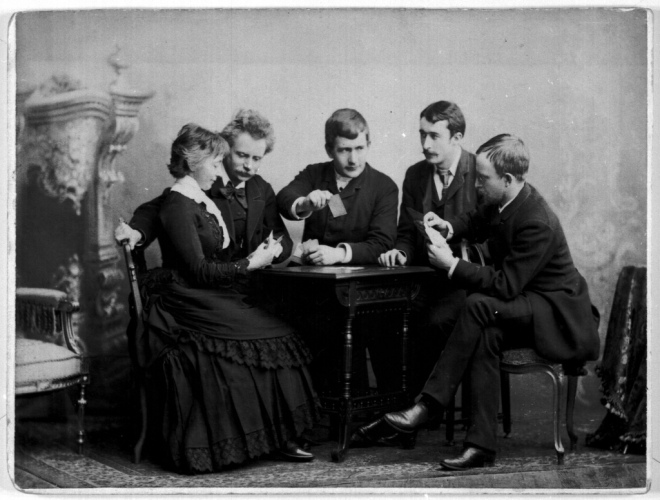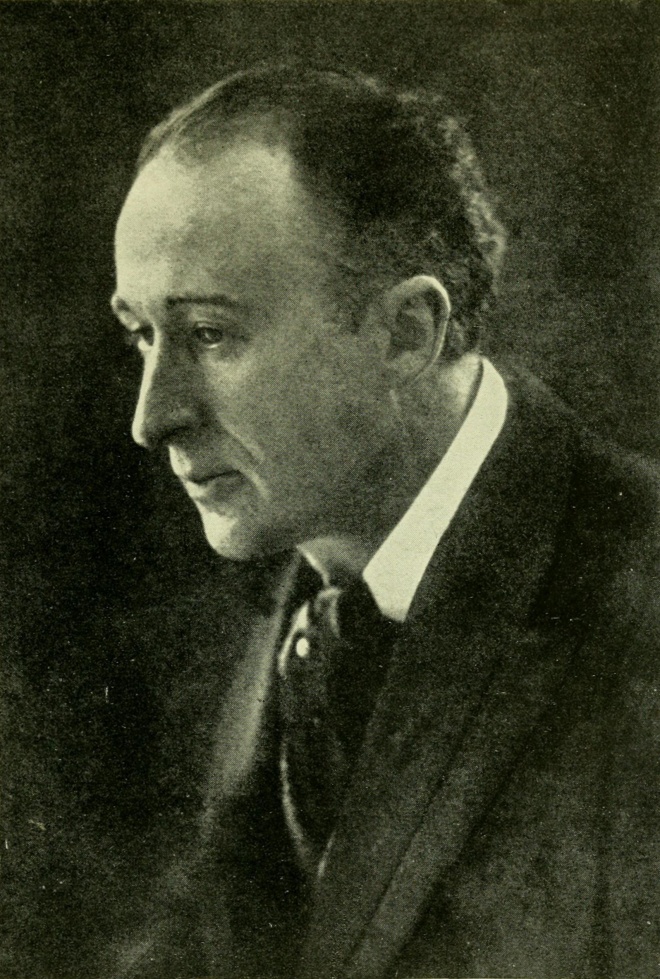This week’s theme is…Rivers! Always in motion, rivers are nature’s steady, majestic channels, flowing with water day and night. They have served as inspiration for artists and musicians in countless ways. This week we examine some examples of this.
Rivers, Day 2 – By the River from the Florida Suite by Frederick Delius

In college I was a music major. Well, the story is actually not quite that simple. I actually started life as a double major, music AND biology. In high school I did very well in biology and enjoyed the subject (I wasn’t CRAZY about the dissections, but it was neat to see all the inner workings of those animals; who knew earthworms were so complicated inside?!) and my family thought that a degree in that field would provide a more marketable option in case music didn’t pan out so well – certainly a valid concern. The question of whether to allow one’s children to pursue a career in the arts is of course complicated and you can find articles to support whatever decision toward which you are inclined, complete with evidence concerning factors of salary, happiness, freedom, and the like.
My family decided to let me risk it. I eventually dropped my biology major altogether. And it was never really a major beyond a designation on paper. I remember receiving very intimidating formal letters in my dorm mailbox toward the end of freshman year that read something to the effect of:
“All declared biology majors must complete Biology and Zoology 100 within their first 3 semesters in order to remain in good standing…”
Eventually my mother saw what was up and gave her blessing to shed the pretense in order to focus entirely on musical studies. And I’m not alone among musicians in history. While some musicians were born into families that allowed and encouraged them to continue it as a family business, like Bach (see this post) for example (would he have chosen it had it not been for his lineage?!), his contemporaries Handel (see this post) and Telemann (see this post) , in spite of their demonstrative musical gifts, were first encouraged to study law. Martin Luther, the founder of the faith shared by all three of them, did too, incidentally. The English composer Frederick Delius is another such example, but not for law. His prosperous German family (Dutch before that) had gained its fortune through wool sales and recently settled in Britain to expand its trade.
The Delius family obviously valued music. Brahms’ favorite violinist Joseph Joachim was a guest in their house (can you imagine that?!) – for more about Brahms and Joachim see this post. The young Delius studied violin with a member of the esteemed Halle Orchestra (for more about a conductor of the Halle Orchestra, see this post) and also improvised on the piano, drawn to the music of Grieg and Chopin (see this post).
When he grew up and it was time to consider his means of living, his father, Julius, assumed he would simply walk into a post of the family wool business and easily assimilate into the prevailing culture. But after repeated attempts to place him in various locations throughout Europe to push their interests, from England to Germany to France, with Frederick neglecting his commercial duties in favor of leisure and musical pursuits in each, Julius finally acknowledged that a future in the wool business was not in Frederick’s cards. But, he still wasn’t content to permit full time musical study. And so, in 1884, Frederick Delius was sent to Florida to manage an orange plantation. It is not known whether the idea was Frederick’s or Julius’ (if it was dad’s, you could easily make an Orange Julius joke), but Frederick exhibited a similar pattern there, shirking his citric duties in order to compose, study with a local musician (Thomas Ward, considered by Delius to be the most important teacher of his entire career) and eventually moving to Virginia after having delegated the duties of the plantation to an employee in order buy the freedom to give lessons himself in the areas of violin, piano, music theory and composition.
After observing all of this, Julius finally gave in, somewhat at least, and allowed Frederick to enroll in the prestigious conservatory at Leipzig during which time he had the opportunity to rub shoulders with such luminaries as Mahler, Tchaikovsky, Brahms and Grieg. Grieg became a particularly significant mentor and champion; the two shared a close rapport. Here is a famous picture of them playing cards together:

This picture indicates that Delius had penetrated deep within the Norwegian musical circle. Grieg and his wife, Nina, are on the left, then Johan Halvorsen, then Delius, and then Christian Sinding on the very right. All were prominent Norwegian musicians except for Delius. It was Grieg who was at long last able to complete the process of persuading Julius that Frederick Delius’ life would be best spent in the pursuit of musical arts, which the steadfast father had still not entirely acknowledged even by this point.
During his time at Leipzig Delius composed an orchestral suite based on his experiences and impressions of Florida, the Florida Suite. The orange plantation was located in a suburb of Jacksonville called Solano Grove, just a few miles from the delta of the Saint John’s River. The second movement, lyrical, dreamy, relaxed, meandering, is a musical essay on the river:
The whole suite speaks in a warm, hushed lyricism, but the second movement in particular features superb melodic writing that is simultaneously soothing and unpredictable. The warm glow of this music was to remain a hallmark of Delius’ voice for his entire career. From listening to this is it clear why Grieg felt such an affinity for the young British composer.
In Leipzig, Grieg was ultimately convinced of Delius’ musical endowments from hearing a private performance of the Florida Suite. Frederick was fortunate to gain such an accomplished and persuasive champion (for more about Grieg, see this post), just the right person to finish the job of convincing Julius to let his son continue on the path for which he was best-suited. It’s never an easy decision for a parent, and perhaps Julius held on longer than he should have. But for Frederick it was the right decision and, once permitted, he went on to make a lasting and lyrical mark on the face of the music of a proud nation during a time when it needed all the distinguished and original musical voices it could find (see this post). Delius still stands out as a distinctive voice in British music, a well-kept secret that many musicians and listeners are happy to discover.
—
Would you like Aaron of Smart and Soulful Music to provide customized program notes especially for your next performance? Super! Just click here to get started.
Want to listen to the entire playlist for this week and other weeks? Check out the Smart and Soulful YouTube Channel for weekly playlists!
Do you have feedback for me? I’d love to hear it! E-mail me at smartandsoulful@gmail.com
Do you have a comment to add to the discussion? Please leave one below and share your voice!
Subscribe to Smart and Soulful on Facebook and Twitter so you never miss a post!
